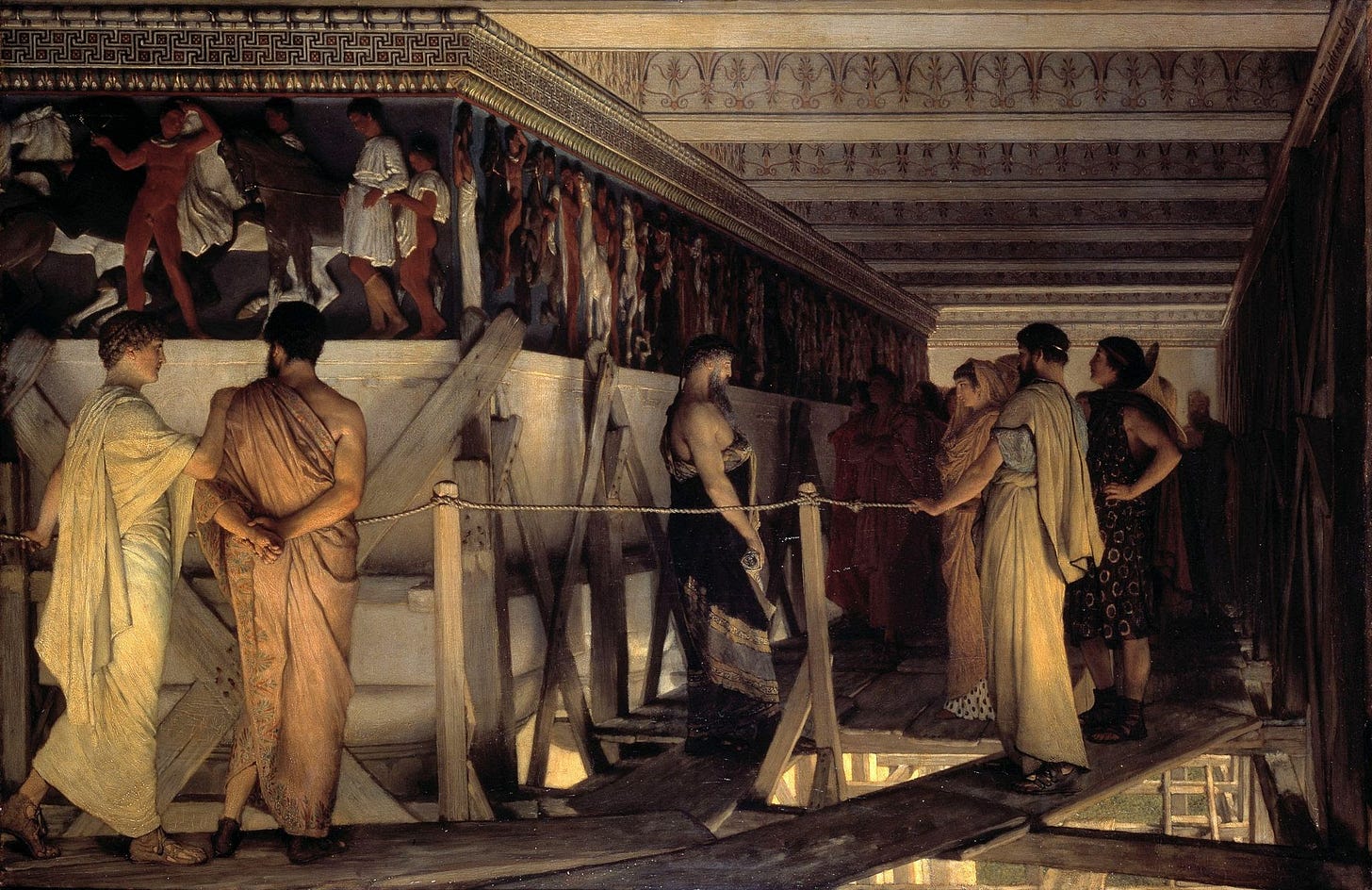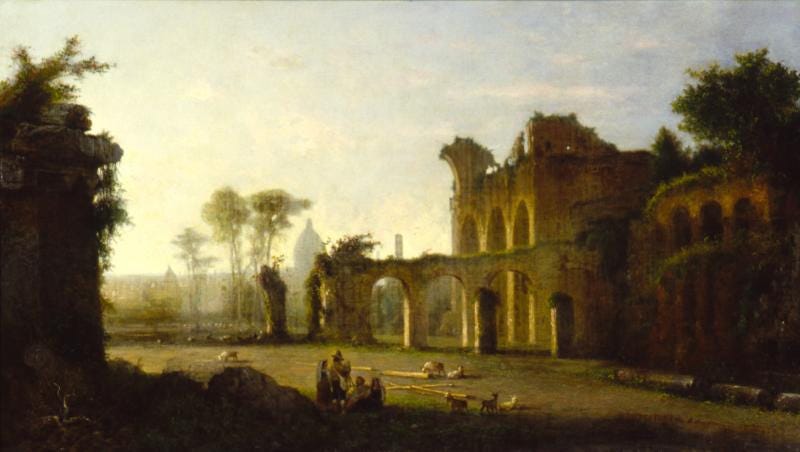Issue II: Golden Ages, Discipline, and Violence
Four new amazing essays about the ancient world and the future
This is Issue II of The Classical Futurist, the monthly magazine that focuses on future studies from the lens of classical antiquity.
Our launch last month was successful! More than a hundred of you have signed up to receive our monthly emails like this one, and many more have read our four essays. We’re excited to keep going.
Without really planning to, Sachin Maini and Étienne Fortier-Dubois wrote complementary pieces about the two major rival cities of classical Greece: Athens and Sparta. Both were great in their own way — and it seems fitting to contrast them as we wonder what shape our future should take. What can we learn from the harsh pursuit of excellence of Sparta, or from the cultural and intellectual flourishing of Athens?
Meanwhile, Caleb Ontiveros identifies one way in which our present and future have greatly improved on antiquity: the virtualization of violence in entertainment. We top off this issue with three short pieces on works from or about antiquity that inspire each of us.
If you haven’t subscribed already, you can do so right here. You will receive exactly one email per month with the contents of the current issue.
Issue II, October 2021: Contents
How Does It Feel to Live During a Golden Age?
Are we currently in a golden age? Can we actually tell? In this essay, Étienne Fortier-Dubois examines the details of the 5th century BC Golden Age of Athens, from politics to culture to economics. Maybe this can help us attune our senses to what it means to live in a prosperous and transformative period, and ensure that our future fits this description.
Discipline Is Freedom: Spartan Lessons for an Era of Superabundance
Sparta wasn't just a warrior society; it was a society defined by the pursuit of discipline and self-mastery. Sachin Maini argues that, in the current era of superabundant resources and information, the pursuit of excellence is a more promising path than the hedonistic culture we find ourselves in.
Virtual Violence, Real Peace: A Defense of Virtualism
So much of our world has gone virtual — from relationships, finance, and work. This trend is often seen in a pessimistic light. The virtual is incomplete and inauthentic. But what if virtualism is a tool for peace? In stark contrast to the physical bloodshed in antiquity, violence in modern entertainment is imaginary and unrealistic. Caleb Ontiveros defends the positive side of moving into digital unreality in this essay.
3 Classical Works That Inspire Us: A Comic, Journal, and Defense Speech
Caleb Ontiveros, Étienne Fortier-Dubois, and Sachin Maini each pick a single inspirational work from or about antiquity. No spoilers, but one chose a diary, someone else chose a cartoon, and another chose The Apology.
If you like The Classical Futurist, please don’t hesitate to give us a shoutout.





